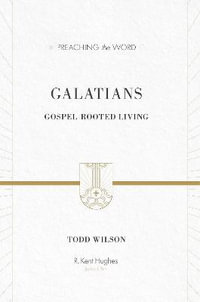In recent years some evangelical scholars have claimed that the Gospel writers were allowed by contemporary literary conventions to present events one way even when the historical reality was different. This involves a number of distinct claims about writing conventions, each of which requires individual investigation. McGrew has done her homework and systematically considers the evidence for each convention, ultimately finding them all wanting. At the same time she amasses evidence that the gospels should be read in a way lay readers are likely to read them anyway. I am grateful for her knowledgeable contributions to Gospel studies.
Peter J. Williams | Principal, Tyndale House, Cambridge
As Thomas Kuhn pointed out long ago, it is often someone from a different discipline who has the epistemic distance and objectivity to evaluate a widely accepted paradigm/methodology in another discipline, because practitioners in the latter tend to look at things the way they were trained and, thus, cannot see things accurately. Kuhn’s remarks are right on target when it comes to philosopher Lydia McGrew’s critique of widespread methodological practices in New Testament studies. While The Mirror or the Mask is very easy to read, it is also a massive piece of first-rate, rigorous scholarship that leaves no stone unturned. Replete with very careful distinctions, The Mirror or the Mask offers a precise analysis of the contemporary practice of employing “fictionalization” to exegete various Gospel texts. McGrew’s careful analysis finds such a practice wanting and dangerous and replaces this practice with an approach that treats the Gospels as honest historical reports based on eyewitness testimony. This book is a must read for all who are interested in the historical accuracy of our portraits of Jesus. I highly recommend it.
J.P. Moreland | Distinguished Professor of Philosophy, Talbot School of Theology
Readers can learn a lot about good historical method, ancient and modern, from McGrew’s extremely thorough and meticulous analysis. However, three clarifications are essential: (1) This book is not about literary devices in general but about fictionalizing devices. (2) The approaches most criticized are not common among inerrantist Gospel scholars. (3) The evangelical scholars criticized, both inerrantist and non-inerrantist, have overall been significant defenders of Gospel reliability and of the Christian faith more generally.
Craig L. Blomberg | Distinguished Professor of New Testament, Denver Seminary
Speaking as a specialist in Biblical studies, I find Dr McGrew’s work here to be a cold breeze right in the face: it is both bracing and refreshing. It is bracing because of the scrupulous attention to detail in the primary sources and the relentless logic of the analysis. But it is refreshing, not only for its clarity of presentation but also for the sense that good scholarship actually brings us a greater confidence that the Gospels really do tell us things that Jesus did and said and that he entrusted his apostles to remember. I commend this work to my fellow specialists and to all who enjoy clear thinking.
C. John (“Jack”) Collins, Professor of Old Testament | Covenant Theological Seminary
























